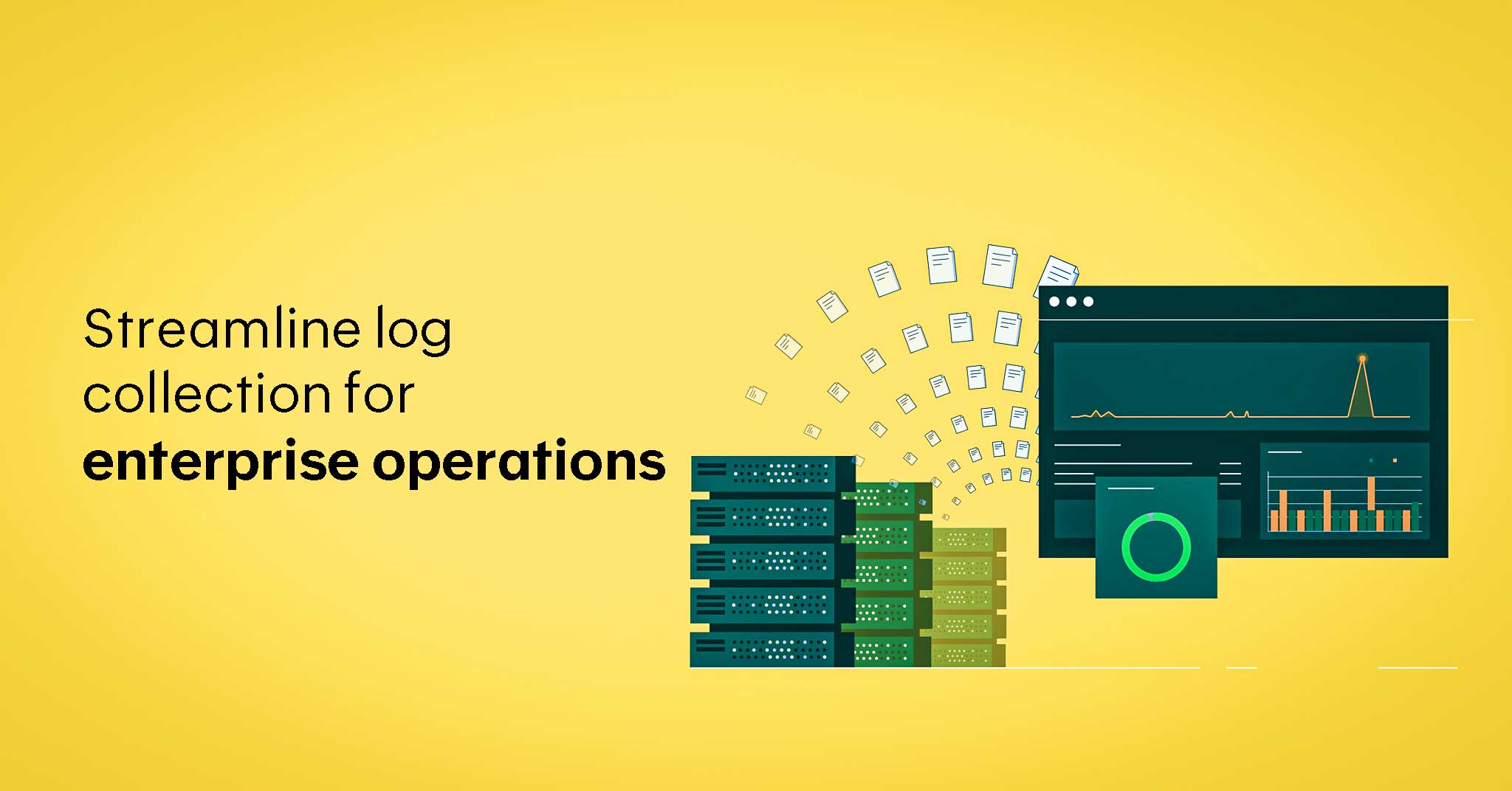Enterprise guide to streamlined log collection using Site24x7

Handling logs in a large-scale server infrastructure is no small task. It’s a critical component of maintaining smooth operations, especially for industries like healthcare, where over 1,000 servers might be managing everything from patient records to billing systems. When these logs are scattered and disconnected, this disarray slows troubleshooting, fragments operational insights, and ultimately undermines system reliability.
The challenges of collecting logs from enterprise-scale server infrastructures
Large-scale log collection isn’t without its hurdles:
- Diverse log formats: Different systems, applications, and devices generate logs in their unique formats.
- High data volumes: Thousands of servers can easily produce terabytes of data daily.
- Latency issues: Delays in processing logs can compromise real-time monitoring and resolution.
- Network strain: Transmitting vast amounts of log data can affect bandwidth and performance.
- Event correlation challenges: Linking log events to performance metrics across systems is essential to identify issues, patterns, and root causes effectively, but it can be complex and time-consuming.
How can organizations overcome these challenges to ensure seamless operations?
A centralized log collection solution brings all the puzzle pieces together, creating a complete picture of your IT environment. Without it, teams struggle to connect disparate data points, leading to inefficiencies and missed opportunities for optimization. By centralizing logs, you gain:
- Unified visibility: Enjoy a single, real-time view of your entire IT environment.
- Rapid troubleshooting: Quickly resolve issues with consolidated log data.
- Faster incident response: Identify problems swiftly, reducing downtime and resource usage.
- Proactive monitoring: Detect potential issues before they escalate, ensuring smoother operations.
That’s where Site24x7 steps in, offering a streamlined approach to centralizing, analyzing, and acting on log data. With features like real-time insights and support for diverse log formats, Site24x7 provides log management tailored for large enterprises, helping businesses scale efficiently while maintaining operational excellence.
Step-by-step guide to enterprise log collection
Here’s how you can get started:
- Deploy the Site24x7 agent: Begin by installing Site24x7 agents on all servers. These lightweight tools seamlessly collect logs from diverse systems and applications. Installation is fast, with minimal impact on system performance.
- Aggregate logs in a centralized repository: Centralize all collected logs in the Site24x7 platform. A single repository ensures streamlined access, better analysis, and reduced data silos.
- Build custom dashboards: Build dashboards tailored to your organization’s needs. The platform also offers a default dashboard, providing instant, out-of-the-box insights into your log data. This enables you to start monitoring key performance indicators right away without any complex setup.
- Configure alerts for key patterns: Set up automated alerts for predefined thresholds or patterns, like repeated login failures or server resource exhaustion. Receive instant notifications to act promptly.
- Automate incident response: Configure automated actions, such as restarting services or notifying team members when critical log events are detected. This reduces manual intervention and ensures faster responses.
Transform your log management strategy for enterprise success
Managing logs across an enterprise is no small feat, but it doesn’t have to feel like herding cats. With Site24x7, enterprises can centralize their log collection, minimize operational chaos, and gain actionable insights to stay ahead of challenges.
It’s time to transform your log management strategy. Ready to give Site24x7 a try? Your enterprise deserves it.
Take a quick look at our Log Management in 45 Seconds video for an overview of the platform in action.
Topic Participants
Subashree K